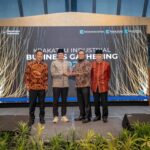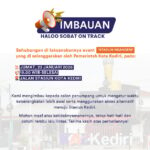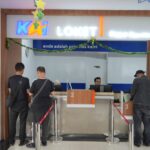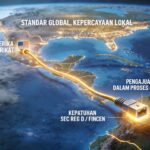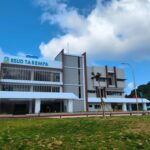For Greenpeace, true sustainability requires more ambitious action, including the phase out of single-use plastics like sachets and a 75% reduction in plastic production to stay below the critical 1.5°C global warming threshold.
QUEZON CITY, Philippines (29 October 2024) — As the world gears up for the fifth session of the Intergovernmental Negotiating Committee[1] to develop a legally binding Global Plastics Treaty, the Business Coalition for a Global Plastics Treaty has signed[2] the ‘Bridge to Busan’ declaration. This move, supported by over 250 businesses and institutions, calls for addressing the full lifecycle of plastics, including limiting the production of primary plastic polymers.[3]
Greenpeace Philippines welcomed the coalition’s declaration but emphasized that the key to solving the plastic pollution crisis lies in both public policy and concrete actions from businesses. Major corporations like Unilever, Nestle, Coca Cola, and PepsiCo—all of whom are members of the coalition—are among the world’s biggest producers of single-use plastics. Companies must drastically reduce plastic production, particularly sachets which compose 52% of the residual plastic waste stream in the Philippines and are a significant source of pollution.
“We need more than just signatures to this declaration,” said Marian Ledesma, Zero Waste Campaigner for Greenpeace Philippines. “Many of these corporations have failed to meet voluntary commitments before, allowing plastic production and the flood of plastic waste to rise. We call on them to immediately implement changes in their operations and commit to drastically cutting plastic production, especially single-use plastics, which are harming our environment and communities.”
For Greenpeace, true sustainability requires more ambitious action, including the phase out of single-use plastics like sachets and a 75% reduction in plastic production to stay below the critical 1.5°C global warming threshold.
“As 99% of single-use plastics are made from fossil fuels, achieving a 75% reduction is crucial in keeping our climate goals. Doing so would contribute to mitigating the climate crisis,” Ledesma added.
“Micro, small, and medium enterprises (MSME) in the Philippines under the ‘Champions of Change’ initiative[4] are currently calling for a strong Global Plastics Treaty. They’re living proof that a future free from single-use plastics is possible. It’s time for big corporations to follow suit, take a stronger stand and remove these plastics from their operations. Not only will such a treaty help the environment, but it’ll also empower businesses to innovate and thrive in a market increasingly focused on sustainability.”
###
Notes to editors:
[1] The fifth session of the Intergovernmental Negotiating Committee (INC-5) aims to develop an international legally binding instrument, or treaty, on plastic pollution. This is scheduled to take place from November 25 to December 1, 2024 at Busan, South Korea.
[2] The Business Coalition signs the ‘Bridge to Busan’ declaration
[3] The Bridge to Busan pertains to a declaration of undersigned members of the INC who are committed to ending plastic pollution worldwide. This supports the inclusion of provisions in addressing the production of primary plastic polymers in the Global Plastics Treaty.
[4] ‘Going green’: MSMEs commit to go plastic-free, ties up with Greenpeace and DTI-NCRO
